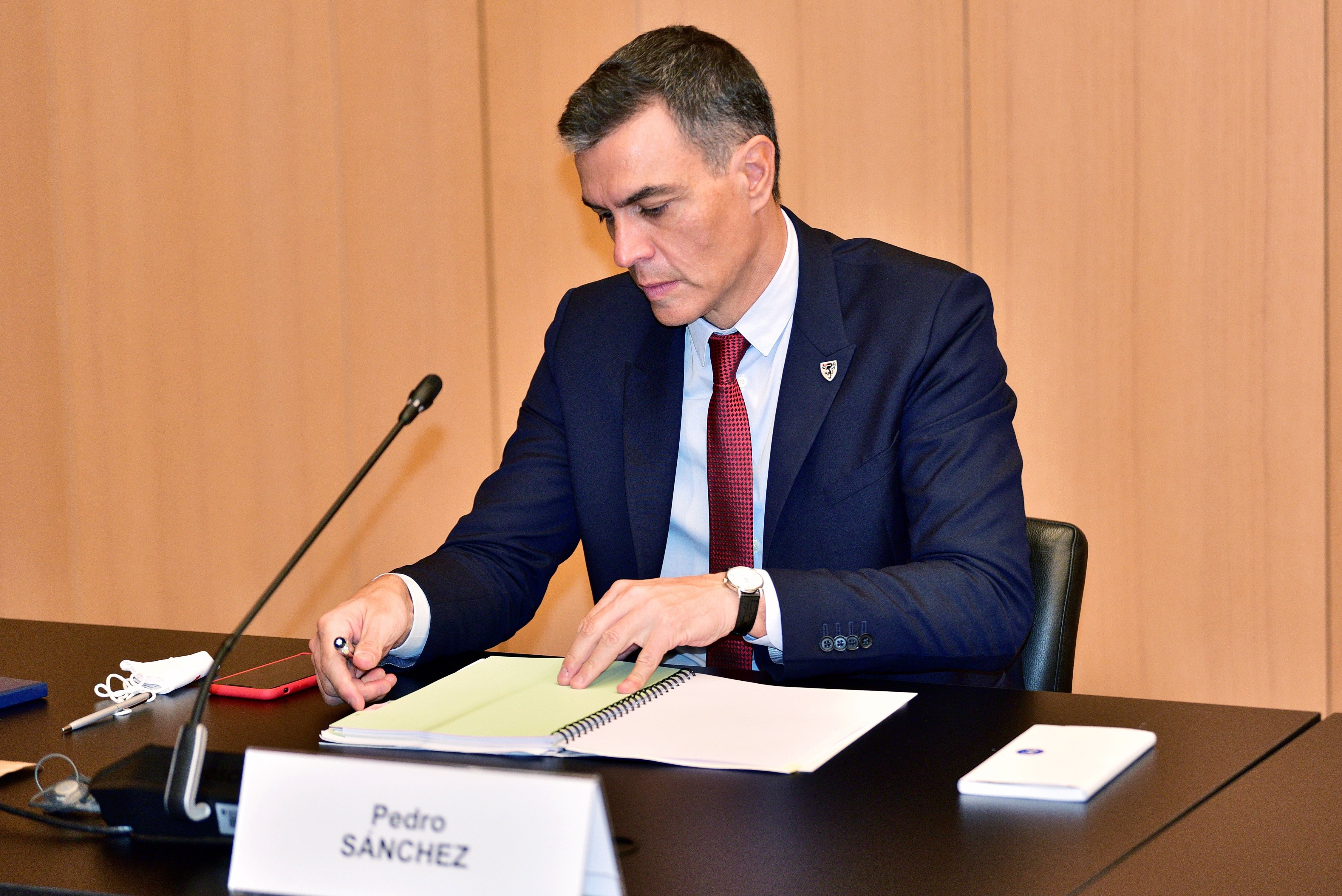All the signs suggest that the corruption investigation into the former king Juan Carlos I will come to naught. At least in Spain. This is what the digital newspaper El Confidencial has announced today, revealing that Spanish prosecutors are preparing to close the investigation they had initiated to determine whether or not possible illegal actions by the emeritus were covered by constitutional inviolability. In this context, speaking from the EU summit in Slovenia, prime minister Pedro Sánchez has made it clear that he will support the prosecution service in whatever decision it ends up making.
In a brief press conference on Wednesday, the prime minister said that "from the government of Spain we have always defended the equality of all Spaniards, no matter what they are called and whatever family name they have." That is, Pedro Sánchez is denying there is any favourable treatment in the inquiries into the country's royalty, and he maintained that "what the tax agency has done, what the public prosecutors have done, is to work with complete freedom, with all the economic and material resources they have needed, to be able to get to the bottom of the actions susceptible to be investigated". And in this regard, he concluded: "From here, we will be with the prosecution service in what it says."
He was also asked about the proposed new Spanish housing law, after Pablo Casado announced that the Popular Party will take the legislation to the Constitutional Court and not apply it in the Spanish communities where it governs. Pedro Sánchez responded that "you can't say no to a project that you haven't been able to read yet" and that it hasn't been possible to debate it in Congress yet either. That is why he asked the opposition "to read the text before announcing that they will appeal it and to give an opportunity to its parliamentary consideration."
The Spanish PM argued that the law substantively agreed between the two government partners, the PSOE and Unidas Podemos, "converts housing from being a problem, as it is today, to become a right." He stressed that the bill to be passed by cabinet will be "absolutely respectful of private property", but that it will also be "committed" to the emancipation of young people and to social housing, one of the "main deficits" of Spain. "People have a problem with access to housing. The public authorities must turn this problem into a right, the right to decent housing," he asserted.
Defence sits down with Kosovo
One of the anecdotes of this current European Union summit with the Western Balkans has been precisely the participation of Kosovo, a state that is not recognized by Spain. Nevertheless, Pedro Sánchez defended his decision to sit at the table with all six Balkan countries, saying that Spain must be present in all forums. In fact, he also "welcomed" the dialogue between Pristina and Belgrade, and encouraged both sides to "find a meeting point consistent with international law and that satisfies the parties."
The six countries of the Western Balkans taking part in the talks with EU members are: Albania, Bosnia and Herzegovina, Serbia, Montenegro, the Republic of North Macedonia and Kosovo. EU press statements on the summit list the names of the countries followed by a footnote: "This designation is without prejudice to positions on status and is in line with UNSCR 1244/1999 and the ICJ Opinion on the Kosovo declaration of independence".

